The views expressed in our content reflect individual perspectives and do not represent the authoritative views of the Baha'i Faith.
Indigenous peoples and people of African descent are two communities that have experienced centuries of genocide, racism, and oppression. Perhaps that’s why they each have unique spiritual roles and stations in the Baha’i Faith.
RELATED: Why Black People Need Safe Spaces to Heal
Baha’u’llah, the prophet and founder of the Baha’i Faith, referred to people of African descent as “the pupil of the eye which is dark in colour, yet it is the fount of light and the revealer of the contingent world.” And in a letter written on behalf of Shoghi Effendi, the Guardian of the Baha’i Faith, it said that “the natives of the great American continents” will “become great standard bearers of the Faith.”
“Native communities have been raped, pillaged, and taken advantage of on many different levels by many different organizations — educational, financial, the list goes on and on,” says Roman Orona, a Native American artist and Baha’i who lives in Chandler, Arizona. Roman is part Apache, Pueblo, and Yaqui and says the Indigenous and Baha’i visions of world unity and peace gives him hope for the future.
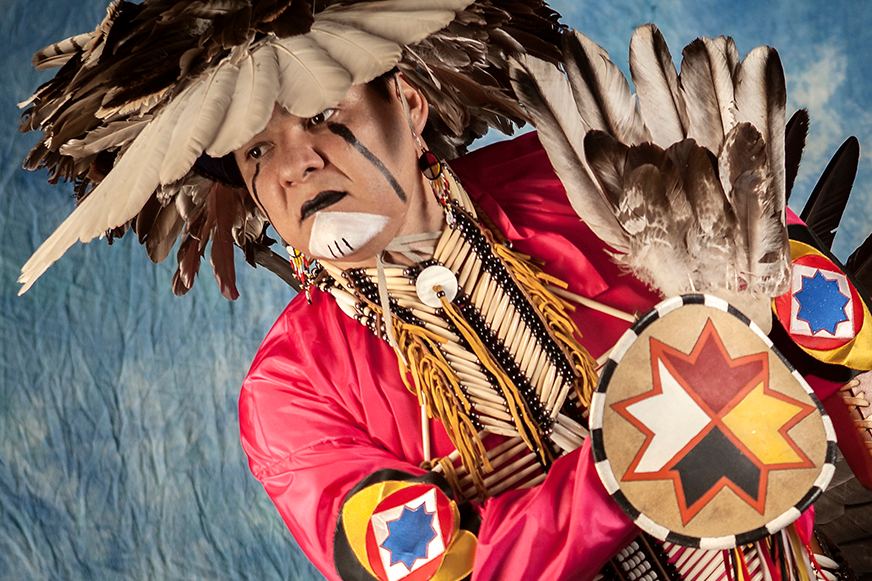
“There’s prophecies of unity that we are all one people…that we’re going to need all people,” he says.
RELATED: How Chief Sitting Bull’s Great-Great-Granddaughter Became the First Lakota Baha’i
Nanabah Foguth-Bulman, a Navajo Baha’i living in Houck, Arizona, agrees that the Baha’i teachings inspire her to be optimistic about the future. She often reminds herself of the extreme torture and suffering that Baha’u’llah and many of his family members experienced throughout the 19th century. Nanabah shared a Navajo prayer with me that says, “With beauty before me, I walk. With beauty behind me, I walk. With beauty above me, I walk. With beauty below me, I walk.”
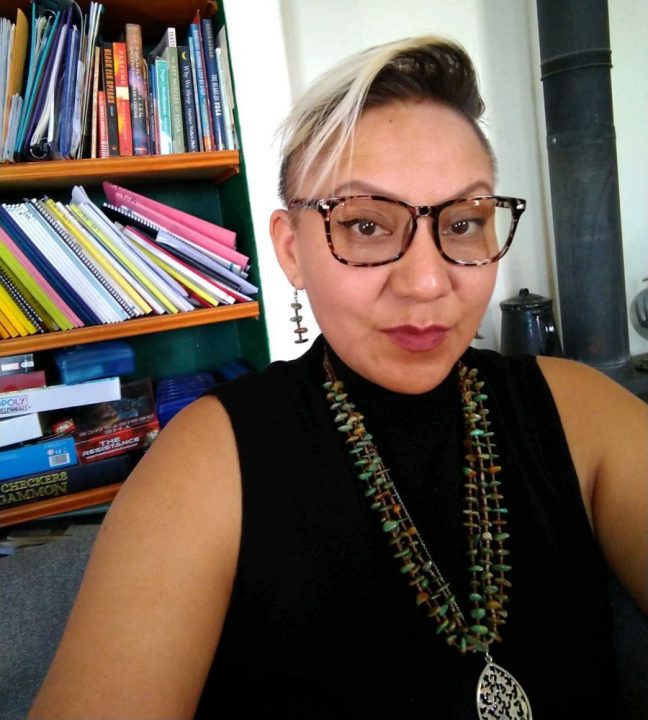
“This idea of attraction to beauty before me guides what is going forward,” Nanabah says. But the idea of beauty behind her helps her find hope despite “the atrocities and the genocide to the population of Indigenous people.” It’s what the Universal House of Justice, the global governing body of the Baha’i Faith, called “persevering in action” and being “imperturbable in the face of tests.”
“That’s kind of the resilience,” Nanabah says, “that people are trying to tap into when looking at today’s difficulties and coming to terms with first the beauty behind me — the beauty of the past, and recognizing our ancestors have had a role in our survival today. So, I’m able to stand here today on the shoulders — on [their] many sacrifices.”
She says that this puts into perspective her “lowly life and humble offerings” to God through service. She says she’s striving to live up to the Baha’i standard and be, as the Universal House of Justice wrote, “penetrating in utterances,” and “unfailing in sympathy for the downtrodden.”
Indigenous Spirituality
Merriam-Webster Dictionary defines “standard-bearer” as “one that leads an organization, movement, or party.” Standard-bearers carry the standard, or banner, and represent the cause they are fighting for.
Nanabah says knowing that Indigenous people are the standard-bearers is a “hope and a prayer and a big responsibility. It’s a privilege to accomplish this.”
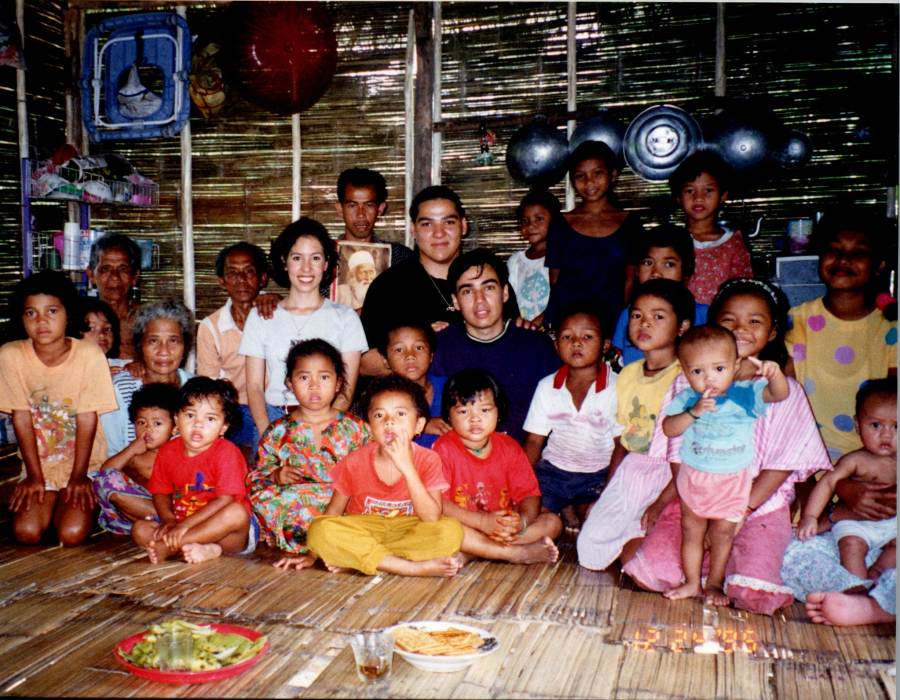
She reflected on some of the names of her Indigenous friends and says that “we still live in a time where our names are translated to ‘be the first to arise.’” For example, Nanabah is a female warrior’s name, and it loosely translates to “the one who went to battle, but survived to tell of it.”
“With the intensity of my service, my name becomes clearer and clearer,” Nanabah says. “Now I’m wielding instruments as a spiritual warrior — acquiring the qualities and attitudes. My tools are love and prayer and kindness and justice.”
She says that whenever she leaves the reservation of the sacred Four Corners mountains to go to Baha’i conferences, seminars, or other gatherings, she comes back to share the insights that she gained with her community. “I’m coming back with the experience of how we generate a movement of a population,” she says.
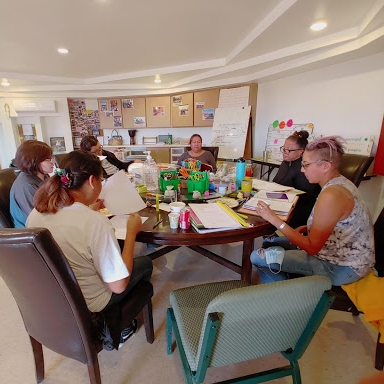
As standard-bearers of the Baha’i Faith, Indigenous people have great potential to be outstanding examples of the Baha’i ideals. Using the terminology common in the mid-20th century, another letter written on behalf of Shoghi Effendi to the National Spiritual Assembly of Central America and Mexico explained this spiritual potential:
If the light of Divine Guidance enters properly into the lives of the Indians, it will be found that they will arise with a great power and will become an example of spirituality and culture to all of the people in these countries.
“Likewise,” Abdu’l-Baha wrote in the early 1900s, “these Indians, should they be educated and guided, there can be no doubt that they will become so illumined as to enlighten the whole world.”
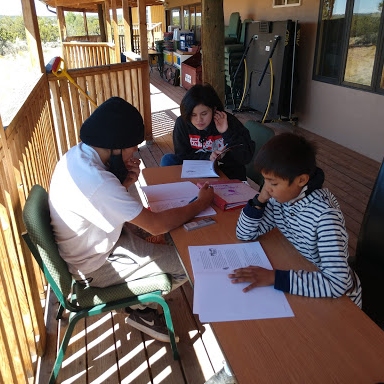
“As an Indigenous person, everything that we do is prayerful,” Roman says. “[When] we tell stories, it’s about learning, but it’s done with love and through prayer. When we sing songs, that is also through prayer — it’s a form of prayer. So, everything that we’re doing, if we’re gardening [or] we’re planting, it’s all surrounded by prayer.”
And Abdu’l-Baha said, “Man must live in a state of prayer. The most blessed condition is the condition of prayer and supplication. Prayer is conversation with God.”
Roman says, “Our prophecies as Indigenous people have always been about the Creator first and foremost. People think, ‘Oh well, you guys worship trees, and you worship the ground, and you worship rocks.’” Indigenous people don’t worship these things, Roman explains. Instead, they honor Mother Earth and everything it provides — food, water, firewood, nourishment — because they understand that all of this is a gift from God.
What Western Society Can Learn From Native American Spirituality and Culture
Since Indigenous communities have the potential to become “outstanding examples of education, of culture and of civilization for the entire world,” I asked Roman and Nanabah what Western society can learn from Native American culture.
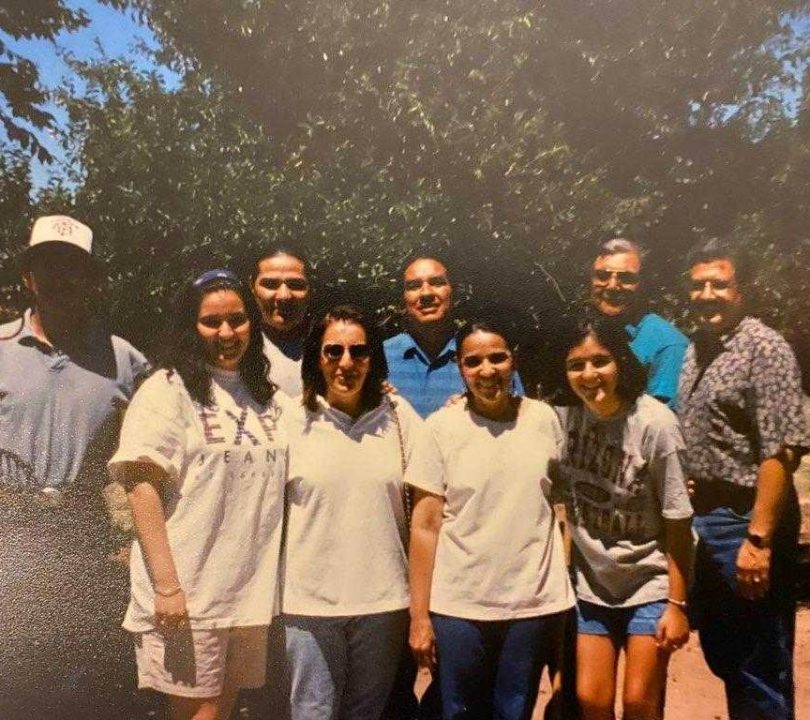
“First and foremost,” Roman says, “I think the Western culture can learn that it’s not all about me. It’s always, always, always about us.”
“My actions that I do as an individual affect the world around me,” Roman says. Too often, society is so quick to build and create pipelines and fast-track everything, that “we’re not taking time to see the bigger picture.”
“If I cut down this tree, what does that do to the tree itself, to the animals that potentially used it? In Native culture, when we take something, we only take what we need,” Roman says. “Everything has to be sustainable, and if it’s not sustainable, then you shouldn’t be doing it.”
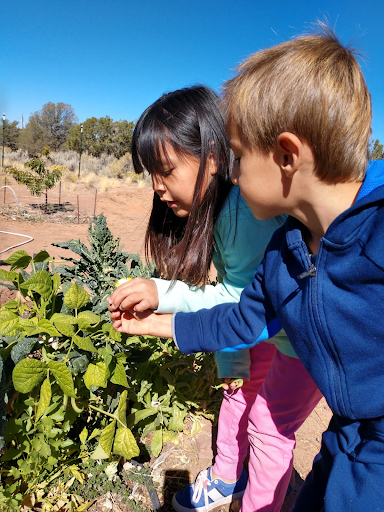
Nanabah agrees that Western culture could benefit from the Native American emphasis on collective well-being. “We can learn together to honor this phrase ‘to all my relations or all my relatives,’ and this embodies the oneness of humanity,” Nanabah says. “In Navajo, it is the spiritual kinship that we have, and it’s in our introduction.”
RELATED: Navajo Tradition and the Baha’i Teachings
For example, whenever they are introducing themselves, they are often sitting in a circle where everyone is equal, and everyone gets a chance to speak.
“When we say that phrase in a circle, we recognize that everyone in the circle has a place in the human family, but it also implies that I understand my place in the physical world — the animal kingdom, the mineral kingdom, the plant kingdom,” Nanabah says. “When we say that to all my relations, I acknowledge that I am a relative to the Earth in the home, that I acknowledge my place and its relation to the sun, to the stars, to the universe, and then the heavens.”
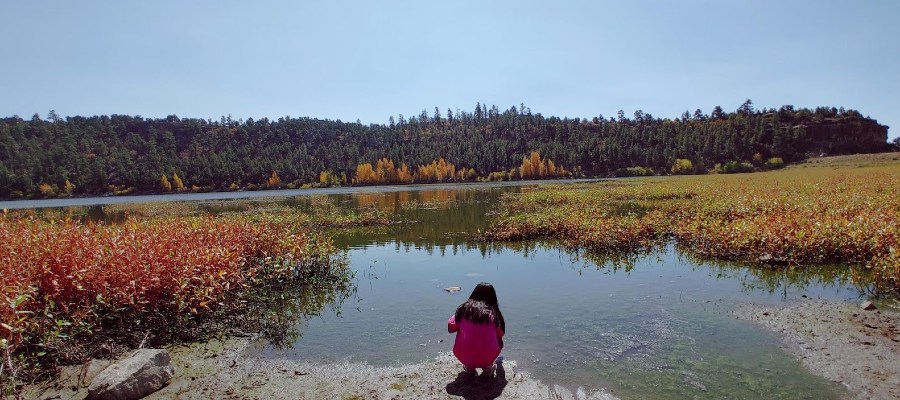
Nanabah says everyone could benefit from recognizing “that there is a tender, fragile balance in all of these things.” She remembers to “introduce who I am as a daughter of the kingdom — to the land.” And her obligation is “to take care of what is in front of me, behind me, [and] to every other side to which we are exposed.”
So, she invites others to join her in saying “to all my relations” in every circle or introduction that we find ourselves in. “This is my prayer and I walk with this prayer,” Nanabah says.


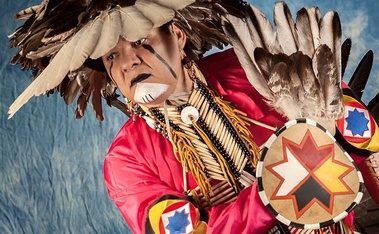









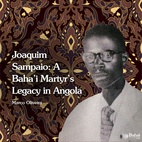
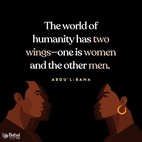
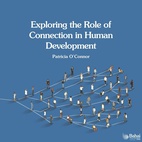


Comments
Sign in or create an account
Continue with Googleor